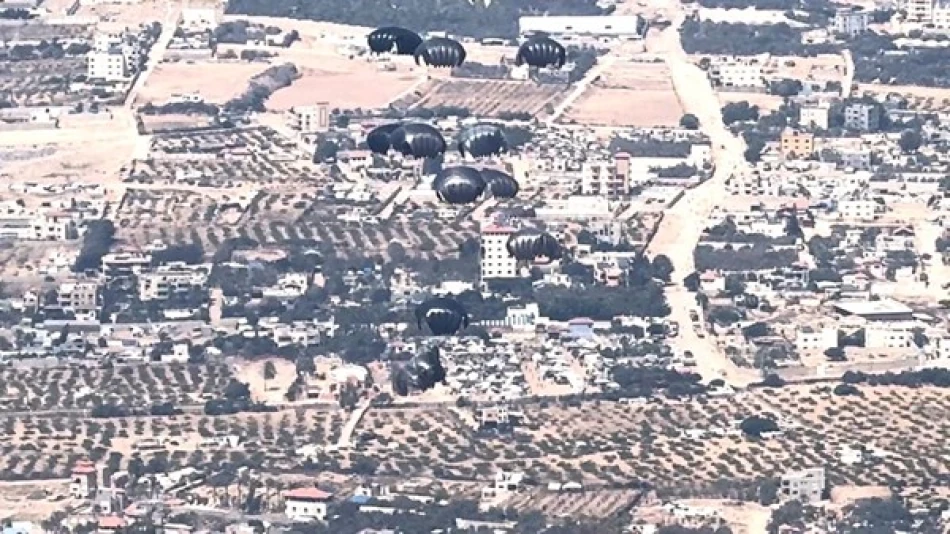
Emirati-Backed 'Goodwill Birds' Soar Again Over Gaza, Bringing Relief
UAE Resumes Gaza Airdrops After Nine-Month Halt, Reinforcing Regional Humanitarian Leadership
The United Arab Emirates has resumed its "Birds of Goodness" humanitarian airdrop operations over Gaza after a nine-month suspension, marking a significant diplomatic achievement that underscores the Gulf nation's growing influence in regional crisis management. The operation, conducted in partnership with Jordan, has already delivered 3,750 tons of aid since its inception and represents 44% of all international assistance to Gaza according to UN reports.
Diplomatic Success Breaks Operational Deadlock
The resumption of airdrops represents more than just humanitarian relief—it demonstrates the UAE's expanding soft power capabilities in one of the world's most complex conflict zones. After nearly nine months of suspension due to escalating warfare conditions, intensive Emirati diplomatic efforts across multiple capitals succeeded in securing the necessary clearances and safety guarantees to restart operations.
This diplomatic breakthrough is particularly significant given the challenging operational environment. The use of GPS-guided delivery systems represents a technological advancement in humanitarian logistics, allowing precise targeting of aid packages while minimizing risks to aircraft and ground personnel.
Strategic Positioning in Humanitarian Diplomacy
The UAE's approach mirrors successful humanitarian strategies employed by other regional powers, but with a distinctly Emirati characteristic: comprehensive multi-modal delivery systems. Unlike single-channel aid efforts, the Emirates has established land, sea, and air corridors, creating redundancy that ensures continuous support even when individual channels face disruption.
This strategy positions the UAE alongside established humanitarian powers like Norway and Switzerland, but with significantly greater financial resources and regional proximity. The $1.2 billion commitment over 500 days of operations places the Emirates among the top per-capita humanitarian donors globally.
Infrastructure Investment Beyond Emergency Relief
The "Gallant Knight 3" operation, launched in November 2023, extends far beyond traditional emergency aid. The establishment of two field hospitals, six desalination plants producing two million gallons daily, 21 field bakeries, and 50 charitable kitchens represents a comprehensive approach to crisis management that few nations can match.
This infrastructure-heavy approach suggests the UAE views the Gaza crisis as a long-term challenge requiring sustainable solutions rather than temporary relief. The desalination capacity alone represents a significant technological transfer that could outlast the immediate crisis.
Regional Implications and Power Dynamics
The operation's success enhances the UAE's position as a reliable partner for both regional allies and international organizations. The collaboration with Jordan strengthens bilateral ties while demonstrating the Emirates' ability to coordinate complex multilateral operations under extreme conditions.
For regional observers, the UAE's humanitarian leadership represents a shift from traditional aid models dominated by Western nations and international organizations. The combination of rapid deployment capabilities, advanced technology, and substantial financial resources creates a new paradigm for crisis response in the Middle East.
The resumption of airdrops also signals confidence in the UAE's assessment of operational security conditions, potentially indicating broader regional stability trends that could affect economic and political calculations across the region.
Most Viewed News

 Layla Al Mansoori
Layla Al Mansoori






